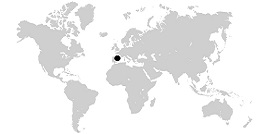Why to prioritize Business tourism?

We are about to close the summer period. There are only a few days to go before the summer campaing is over. The most atypical and distressing season anyone has ever seen. Losses of the 2020 season are going to be immense due to the halting of air traffic, total interruption of cruise ships, hotels partially open and clubs and restaurants half-filled. Summer season will close in red numbers and now it is the time for Business Tourism that is deepened into a “deep coma” since March.
Business travel has been one of the most affected by the health crisis: travel restrictions since the last winter, limit of capacities and cancellation of large events and international fairs. This sector has been stronlgy hit and still has not been able to retake its activity. However, it is necessary to have into account this is a crucial tool for the economical recovery and the sooner we start over, the sooner we will overcome the economic crisis. Especially, for the business community consequences caused by the lack of professional meetings might result in greater losses and uncertainty.
The need to reactivate corporate events tourism
The Minister for Foreign Affairs, Arancha González Laya, mentioned some days ago: “Spain will lead with all chain actors of tourism together, a plan for the recovery of the sector”, once the countries have under control the pandemic globally. From these words comes hope not only for the professionals that work in the sector but also for the large multinationals which had to postpone professional meetings and training courses. It is necessary to remind the fact that the Events sector reflects business activity and the strength of many industries. Also, its professional activity depends on business travel.
The events sector sector reflects business activity and the strength of many industries.
And why is so relevant the corporate events sector? These are the 6 reasons we should invest in promoting the MICE sector:
1. 20% of the tourists in the world are travelling for business
The World Tourism Organization (WTO) confirms in his global report about the meetings industry what experts hasve been announcing for some time now: MICE tourism is one of the main pillars of development of the service sector. Therefore, this activity generates income, employment, investment and generates profits to the overall economy.
2. Mean of knowledge dissemination and professional practices.
The meetings industry plays an important role in spreading knowledge and sharing best professional practices. It is a key element to improve relationships between different regions and cultures.
3. It contributes to the deseasonalization
Bearing in mind the variety of its formats (meetings, incentives, conferences/conventions and exhibitions/events) and the breadth of its proposals (corporate events, product launch, shareholders meeting, seminars, symposiums, congresses, international fairs, incentive trips…) it makes easier to go beyond seasonal tourism and keep the economy afloat for the autumn/winter season.
4. Spain’s proposal stimulatesBleisure
The easiness to combine business travel with the leisure and experiental field offered in Spain nourishes other service suppliers such as (cultural and gastronomical services…)
5. Double economic impact than a leisure tourist
Business travel tourist generates double revenue compared to a leisure one (208€ versus 146€ daily for sun and beach). His purchase power is higher and besides attending the event, uses a series of services during his stay such as: transport, catering, hotels, flights, car rental, purchases in shps, and uses cultural services like visiting museums or attending to shows.
6. Networking and professional conversations
Currently digital plataforms have limitations to chat, especially when there are large groups. It is not possible to talk to multiple individuals when you are having a digital meeting. And even though we need to promote these channels, viertual networking is almost impossible as attention needs to be in the person who is speaking. Therefore, spontaneity is lost and the event adopts a rigid format.
The impact this sector has in the Spanish GDP it is estimated to be about 10.889 millions euros. However, we need to take into account there is no data 100% reliable as many companies keep their events as private. Admittedly, our country is ranked in the twelfth position in the list of 50 countries with greater impact in the events organization.






